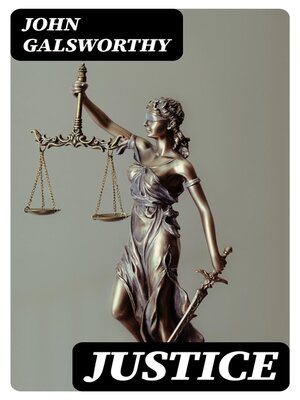
Sign up to save your library
With an OverDrive account, you can save your favorite libraries for at-a-glance information about availability. Find out more about OverDrive accounts.
Find this title in Libby, the library reading app by OverDrive.



Search for a digital library with this title
Title found at these libraries:
| Loading... |
John Galsworthy's 1910 play 'Justice' is a formidable work that joins the ranks of socially conscious literature with its incisive critique of the British penal system. With a narrative set against the drab backdrop of a legal firm, it follows the moral and societal downfall of a young clerk, Falder, juxtaposed against the stoic legal machinery. Galsworthy's naturalistic style, reminiscent of the earlier Ibsen's realist dramas, paves a harrowing path through the life of the characters, culminating in a play that is as much a meditation on human weakness as it is a scathing commentary on the Edwardian era's justice system. Its contemporaneous literary context sees it allied with the works that foreground social issues, demanding reform through the power of the written word. John Galsworthy, a Nobel Laureate, had an enduring concern for social issues and justice, evidenced throughout his prolific body of work. His witnessing of the harshness of penal servitudes, coupled with his insight into the lives of the British middle and upper classes, provides 'Justice' with an authenticity in its portrayal of the disparity between law and humanity. Galsworthy's own exposure to the law, having trained as a barrister, undeniably influences his deep interrogation of the legal process and its implication on the human spirit. 'Recommended for those not just interested in literature, but in the history of social reforms and the human condition, 'Justice' by John Galsworthy delivers a powerful, emotionally charged experience. It prompts profound reflections on societal failures and individual responsibilities, making it an important read for anyone interested in the intersections between law, ethics, and psychology. Galsworthy's storytelling compels empathy and ignites a critical examination of our own societal structures, ensuring that the play remains relevant and continues to resonate with modern audience.






